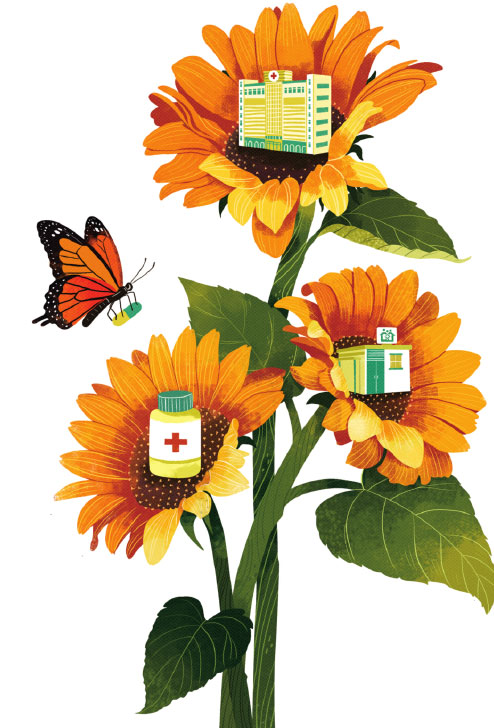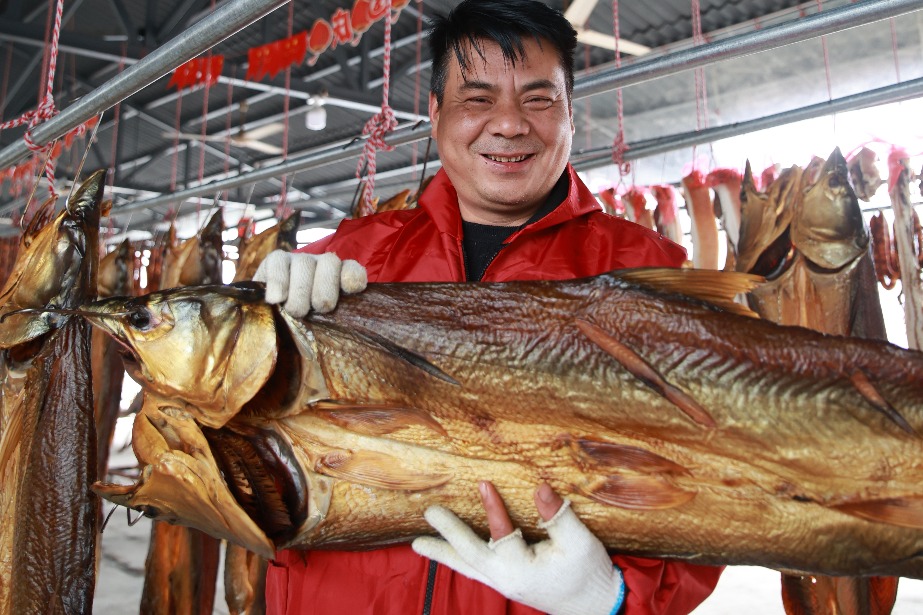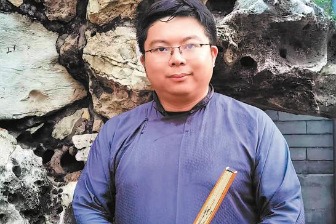Private medical boost amid talent injection


Greater support, quicker approval are diagnosed for success
The State Council has moved to incentivize the growth of private medical institutions with streamlined approvals and greater policy support as experts underscored the importance of enabling more talent flow to the private medical sector.
The cabinet decided at an executive meeting on Wednesday to expand the room of development for private medical institutions, cancelling restrictions on the number of such institutions within a certain region during urban planning procedures.
Workers from public hospitals can apply for the opening of medical institutions while they are still in service or on suspension from duty without pay, according to a statement released after the meeting.
The meeting also vowed improved efficiencies in government approvals, with an interdepartmental mechanism for such institutions set to be established before the end of this year.
The growth of private medical institutions will effectively increase the supply of medical services, stimulate the potential of the market and unleash the potential of consumption in the service sector, the statement said.
According to a report released by the National Health Commission last week, the number of private hospitals reached 20,977 last year, up by 11.8 percent from 2017. Private hospitals, with 26.3 percent of the country's hospital beds, received a total of 530 million patients, or 14.8 percent of the country's total, last year.
Li Ling, a professor who has conducted research on the country's medical reforms at Peking University, said the measures by the State Council showcased the growing importance of private medical institutions in the health sector.
However, she said, one of the major challenges for private medical institutions is the lack of high-quality medical workers. "It is not about money. It is about doctors," she said.
Even though private hospitals far outnumber their public counterparts, a majority of patients still opt for public hospitals. "It is a lengthy process to train a qualified doctor with enough expertise," she added.
The State Council meeting also came up with greater policy support for private medical institutions. To boost the number of outpatients, private hospitals can enjoy the same treatment as public hospitals on the policy of interprovincial on-the-spot settlement of medical bills through basic medical insurance accounts. More private hospitals will also be included in the basic medical insurance system, the statement said.
Tax incentives of small and micro businesses as well as high-tech firms will also be made available to private hospitals, which can also obtain land use rights through government allocation, transferring or leasing.
The cooperation between public and private medical institutions in the development of Internet Plus healthcare will receive support, in addition to services in long-distance medical coordination, medical examination and imaging.
Private medical institutions will be given priority in undertaking rehabilitation and nursing services from top-tier hospitals, and one-stop direct payment services will be promoted between them and commercial insurance institutions, it said.
For private institutions that are devoted to rehabilitation and nursing services at community levels, they can have taxes exempted based on relevant regulations, it added.
Shi Lichen, founder of Beijing Dingchen Consultancy, contended that there is a need to encourage more flow of people and services, including rehabilitation and nursing, from public hospitals to private institutions.
"T he best way is to enable more partnerships between public hospitals and social capital so that hospitals will be incentivized to outsource rehabilitation and nursing services," he said.
The meeting also called for better oversight and the establishment of reporting and handling mechanisms to crack down on wrongdoings. Those with severe credit losses will be subject to lifetime ban from the health sector.
Li, the professor, said the government stepping up punishment for wrongdoing will help improve the quality of private institutions in the sector. She noted that some private hospitals, driven by profits, have tainted the reputation of the sector as a whole.
The reputation of private hospitals in China suffered a blow in 2016 after Wei Zexi, a 21-year-old cancer patient from Shaanxi province, died after undergoing an experimental cancer therapy at a Beijing hospital that had outsourced work to private service providers.
"The key is to make sure that good money drives out bad in the market, not the other way around," she said.
- Dazzling Guangzhou lantern display begins countdown to Spring Festival
- Huizhou takes major step forward as petrochemical hotspot
- Beijing's Shunyi district cracks down on crimes related to public welfare
- Hunan's smoked fish and meat arrive in time for Spring Festival
- International arrivals to Guizhou skyrocket after visa-free policies
- Hubei deputy proposes museum of ancient Chinese law at Qin bamboo slip site





































